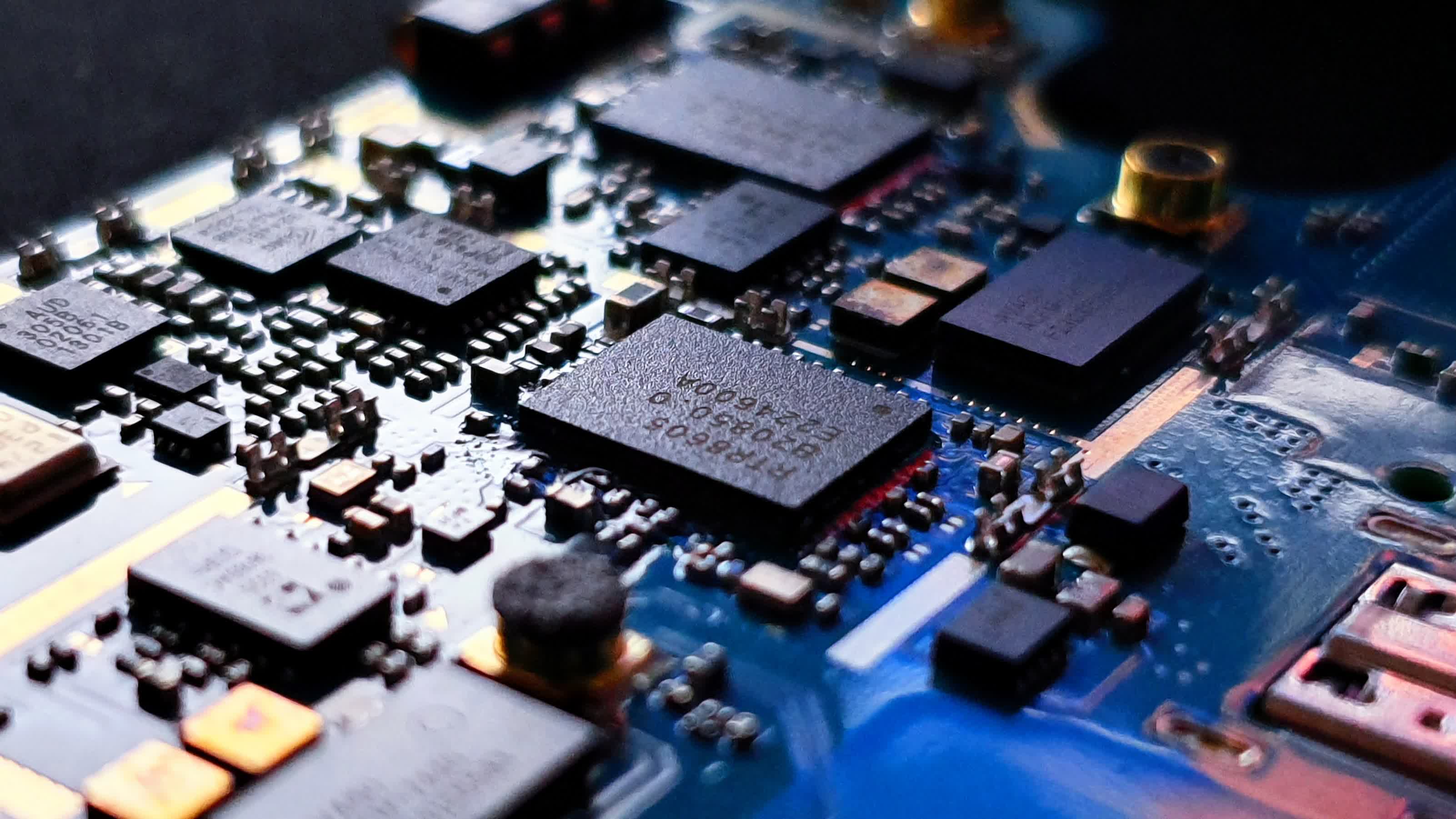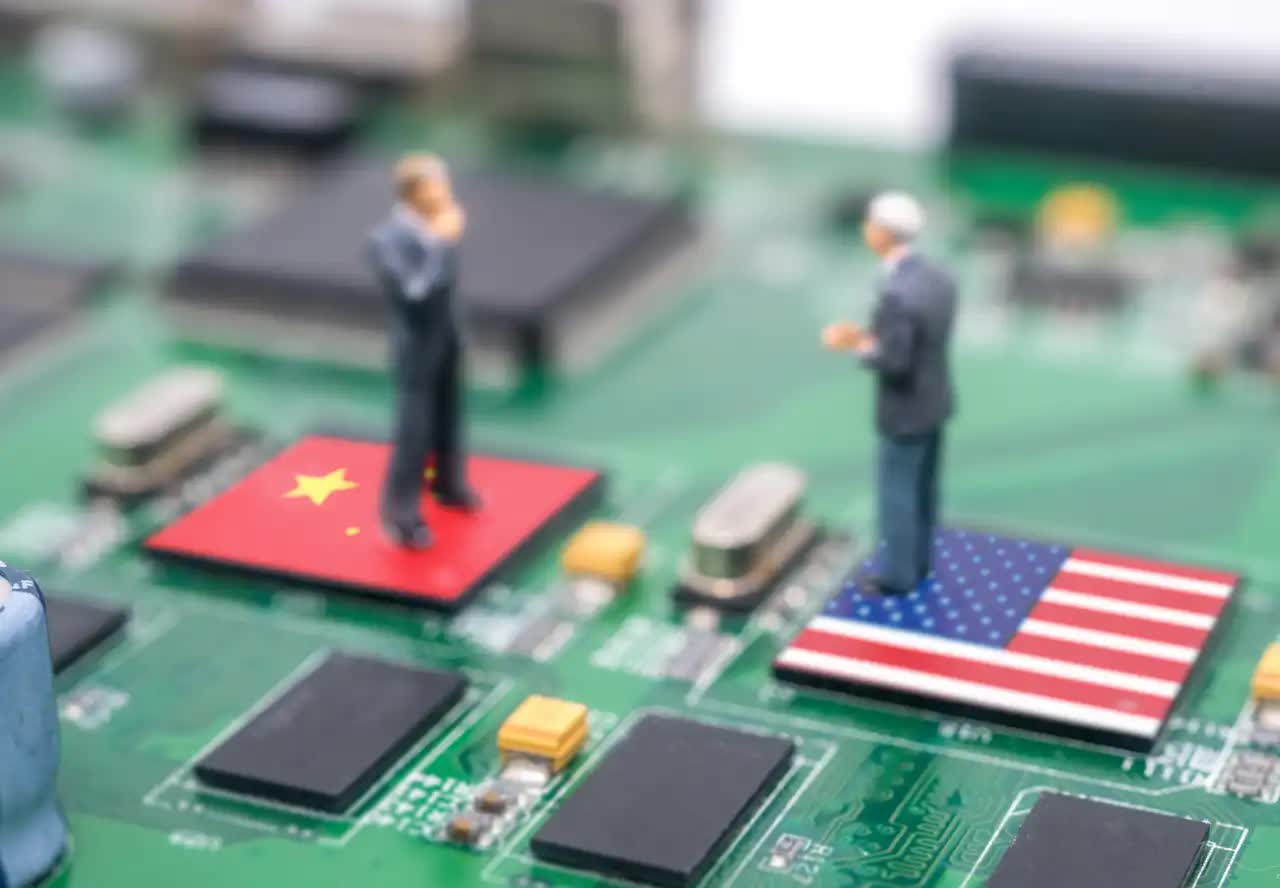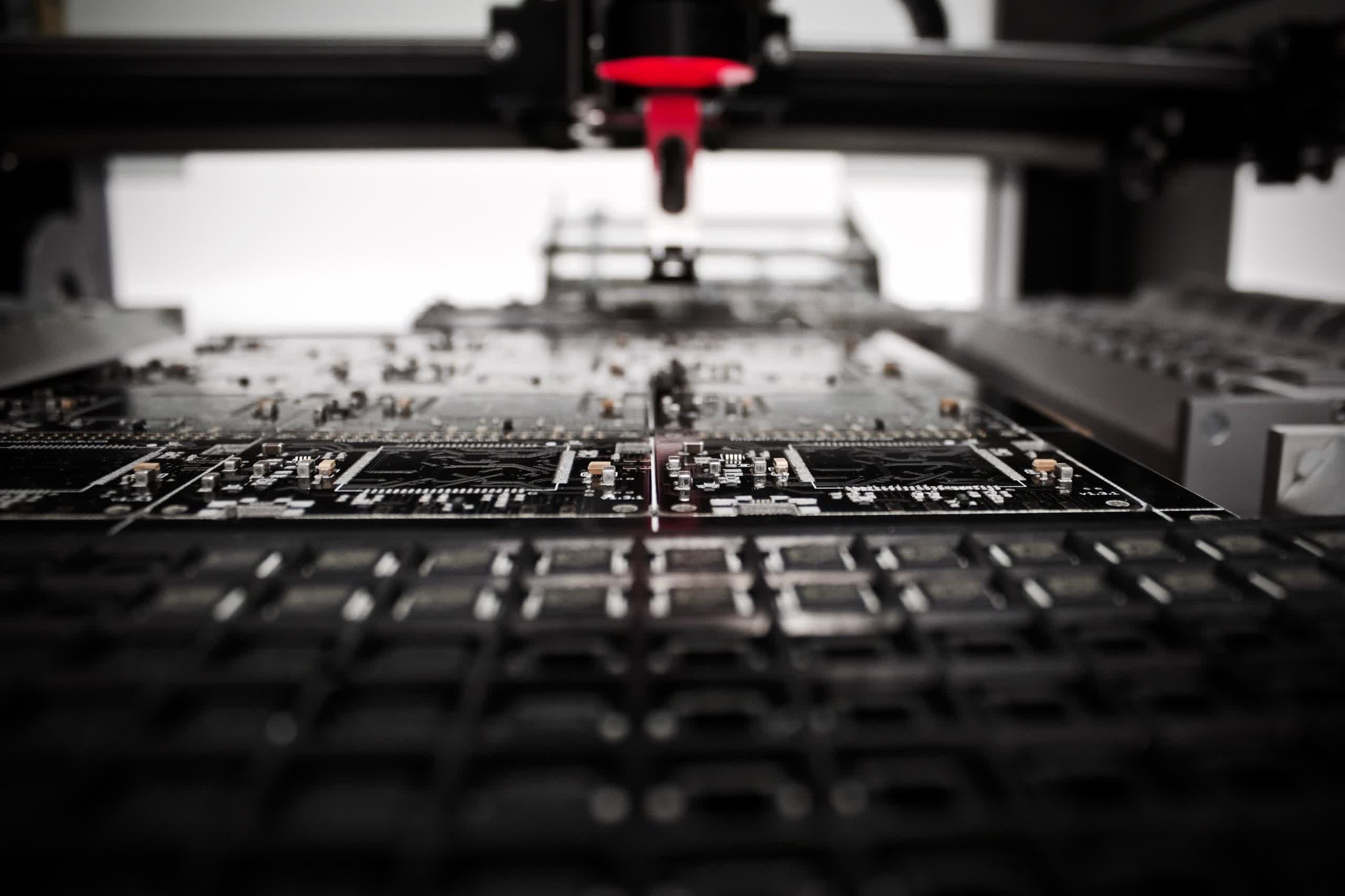A hot potato: Like a train leaving the station, it now seems inevitable that US companies are moving to reduce, or entirely eliminate, their reliance on China. It took a long time to get started, companies had been complaining about changing conditions in China for a decade. The 2018 trade war was the spark that really got them moving, and their progress has only been gaining momentum since then. This process will take years, maybe decades, but at this point is probably unstoppable.

We recently heard about Texas Instruments opening a packaging plant in Chengdu, and we mused that this is probably the last semis plant TI, or any US company, is ever going to open in China. But what will decoupling entail for semis? There are two sides to this – China as a supplier and China as a customer.
Editor's Note:
Guest author Jonathan Goldberg is the founder of D2D Advisory, a multi-functional consulting firm. Jonathan has developed growth strategies and alliances for companies in the mobile, networking, gaming, and software industries.
As a customer, China is an important market, but not as important for other products like luxury goods. In 2021, China imported about $433 billion of semis, which is a huge slice of the industry, but crucially, the large majority of those imports were packaged into other goods and then exported to the rest of the world as PCs and phones and TVs.
In terms of domestic consumption, China's demand for semis and for products containing semis is somewhere closer to 10%-15% of the industry. This is still a big number, but a large portion of that is under threat from domestic alternatives, especially around trailing edge processes, so it is going to fall no matter what US companies do in China.
Barring serious geo-political strife, we think it is unlikely that US semis companies will be entirely blocked from China, so we tend to think of this as less losing a customer and more of a protracted period of sales headwinds. Less growth, not necessarily declines.
The supplier side is more complicated. Today, China really offers US semis companies two things: trailing edge fabs and Outsourced Test and Assembly (OSAT, or packaging and testing).
Trailing edge fabs are somewhat constrained now, but in general the world has sufficient capacity to pick up much of the slack. Every manufacturing economy is currently looking to add trailing edge semis capacity today. Much of that will not end up getting built, but enough of it will that we think US companies will have many options to choose from. True, there are certain corners of the industry that are more dependent on China, memory for instance, but for everyone else decoupling should be easier.
OSAT is more problematic. China's packaging and testing capacity has grown significantly over the past decade. This is high-skilled, labor-intensive work that fits nicely with China's overall manufacturing strengths. It will take considerable work to reduce reliance on this. Other countries have some packaging capacity, notably Malaysia, but China's position here is fairly strong.

On the other hand, packaging is becoming a more important part of the semis ecosystem, it is one part of the solution to the slowing of Moore's Law. As a result, it has attracted considerable attention lately. The leading foundries, like TSMC and Intel (not exactly a foundry yet), have been investing heavily in their packaging flows. Moreover, the typical OSAT flow is already fairly distributed. We regularly work with semis companies who contract OSAT work to a single vendor, but that vendor will ship parts around Asia to balance capacity and capabilities.
Extending this a bit further, we think it is also important to look at China's broader manufacturing capability. This is likely to prove the hardest part of the supply chain to reduce reliance on China.
In parts of China, ISO certifications are so ingrained to the local culture that we have seen bars, restaurants and associated entertainment venues proudly proclaim their adherence to certifiable process expertise.
China now has 40 years of compounding improvements in its manufacturing skills. Whole regions of the country have webs of inter-connected manufacturing facilities from hundreds of special-purpose vendors to training schools. In parts of China, ISO certifications are so ingrained to the local culture that we have seen bars, restaurants and associated entertainment venues proudly proclaim their adherence to certifiable process expertise. Getting things manufactured in China is just easier (not easy, but definitely easier). Ask anyone who has tried to develop a low-volume electronic gadget in recent years – finding reliable vendors in the US for design, sourcing, assembly and QA can be painful, while in China there are hundreds of firms that can do all of that in-house, usually for a lot less.
All of this is to say that decoupling semis, and electronics manufacture, from China need not be a traumatic process, but it will take many years. We have heard rumors that Apple is planning to entirely relocate the majority of its production outside China over the next seven years. And that is Apple, probably the world's best at electronics supply chain management. For everyone else, decoupling will come, but not quickly.
Carrot, stick and waiver
An important question hovering around the US semis sanctions on China is will the US get its allies to support the measures. People in the US may be shocked to learn that not all people in the rest of the world feel the same way about China, and even more shocking, those people may have strong interests in continuing to do business with China.
We are not policy experts (by a large margin), but we do have some sense of which companies in other countries will take the most umbrage with the restrictions and some things that might be able to offset those allies' concerns.

When the US issued the latest rules in October, the authors deliberately truncated the window between announcement and implementation, in some cases down to only a week. Past measures had usually been shared months in advance of announcement. With these latest, far wider measures, the US government wanted to eliminate the potential for last-minute hoarding orders. We also suspect they wanted to limit the ability of US-based lobbyists to dilute the sanctions. Tactically, this made sense, but it came at the cost of the rules getting no outside vetting. US companies had little opportunity to prepare, a topic for a future post, but crucially the US government provided essentially no notice to allies. To put it mildly, this was not received well.
There are four countries in particular most affected by these measures. The Netherlands – home of ASML; South Korea – home of Samsung, Hynix and a host of smaller vendors; Taiwan home of TSMC, UMC and a big part of the supply chain; and Japan – with a large electronics and WFE industry. Add in the UK – home of Arm, Germany whose industrial economy is fairly reliant on China, and a few of their neighbors leads to problems with the EU more broadly.
The situation for each country and set of companies is a bit different, but all of them find themselves in a position where support of their ally the US could directly lead to a loss of revenue, significant amounts in many cases.
These companies represent some very important parts of the supply chain, and having the allies' support will likely mean the difference between the success or failure of the measures. So how can the US keep its allies on-side? We think there are four avenues to consider.
The first is a recognition of shared goals. Many of these countries have shown rising concern over China's behavior in recent years, and many of the companies on this list suffered from the same unfair trade practices which sparked the trade war in the first place. On the diplomatic front, China's aggressive, "Wolf Warrior" diplomacy in recent years seems to have cut off more diplomatic approaches to finding common ground. We suspect that many of these countries share at least some of the US' national security concerns and economic anxiety around China, and so may support the measures.
Even if this is true for governments, many of the companies involved may seek to persuade their governments to allow them to continue doing business with China. Some of the companies have already invested heavily in China and losing access to those assets poses fairly serious hardship.
In particularly acute cases, the US government has been offering waivers to the rules.
In particularly acute cases, the US government has been offering waivers to the rules. Hynix and Samsung seem to have gotten these, and from what we can tell the US is being fairly lenient in handing these out for ally countries. However, the waivers are good for only one year, and no one really knows if those will be extended. From what we can tell, the US seems to be adopting selective enforcement of some its policies, which is not really a comfort to most companies, but does indicate some degree of flexibility.

On the other side of the ledger, the US government has made it clear repeatedly that it has a proverbial "stick" to burnish to "encourage" compliance. The new (and old) rules make it quite clear that any product that contain any intellectual property which can in anyway be tied to the US makes the whole product subject to the regulations. This is most apparent in the case of ASML, who has a large software operation in the US.
ASML's EUV machines are very much at the heart of the sanctions, and we think the US government will go a fairly long way to ensure that none of those get sold to China. To a lesser degree this holds true for TSMC as well. In addition to their dependence on machinery with US IP in it, there is also the matter of EDA tools, a crucial part of the foundry process flow. The EDA companies are all US-based, and their removal from the equation gums up the whole industry.
In between these two extremes the US seems to be considering a whole host of measures to assuage foreign concerns over the sanctions. In the Digits to Dollars newsletter, we linked to a Digitimes report that cautioned the US is considering curbs on China's OLED TV makers.
China's TV makers are a big part of the industry, but it is hard to see them as threatening to the US. They operate in a super-competitive market, eking out meager profits. The US has no domestic vendors and would seem to have little reason to go after this sector. That being said, South Korea, Japan and Taiwan all care a lot about TVs and have had to deal with years of low-cost PRC competition eating into their market share.
We have no idea if the US is actually going to take any actions against China's TV makers, but it would probably be a smart diplomatic move to offer those up to its allies. (Pro-tip for US regulators: take a look at those companies' data collection and retention agreements.)
Moving beyond semis, we also think there are other incentives that these sanctions could provide to allied countries' companies. From our viewpoint, one of the most contentious parts of the sanctions will be what they mean for China's nascent automotive industry. China has ~50 EV makers today, and the PRC would very much like to have a globally competitive auto industry. As we have noted, semis are an increasingly important part of the industry. China is on a path to self-sufficiency for analog and trailing edge auto semis, but the future of the auto industry will depend heavily on access to leading edge digital processors for ADAS and autonomy systems. If China's auto makers are unable to obtain those chips they will be at a significant competitive disadvantage. This is a situation which other countries might appreciate. Germany, for instance. We imagine there are many other similar points of leverage which the US can apply, if necessary.
Putting this all together, we think the US has enough arrows in its quiver to generate support from allies. It is not clear if the US government will be able to win over support from some of the individual companies, but we suspect their governments will see reasons to come around.
https://www.techspot.com/news/96803-disengaging-china-manufacturing-hard-but-happening-slowly.html